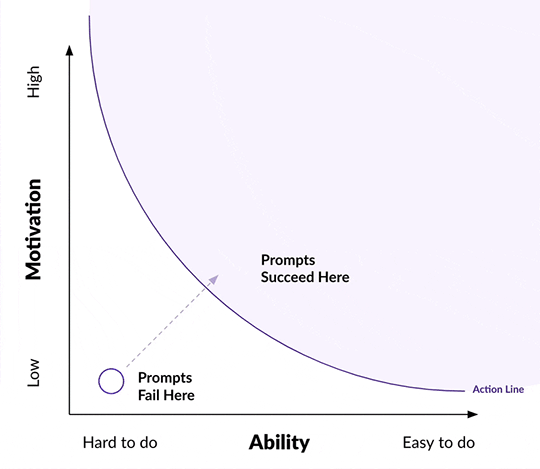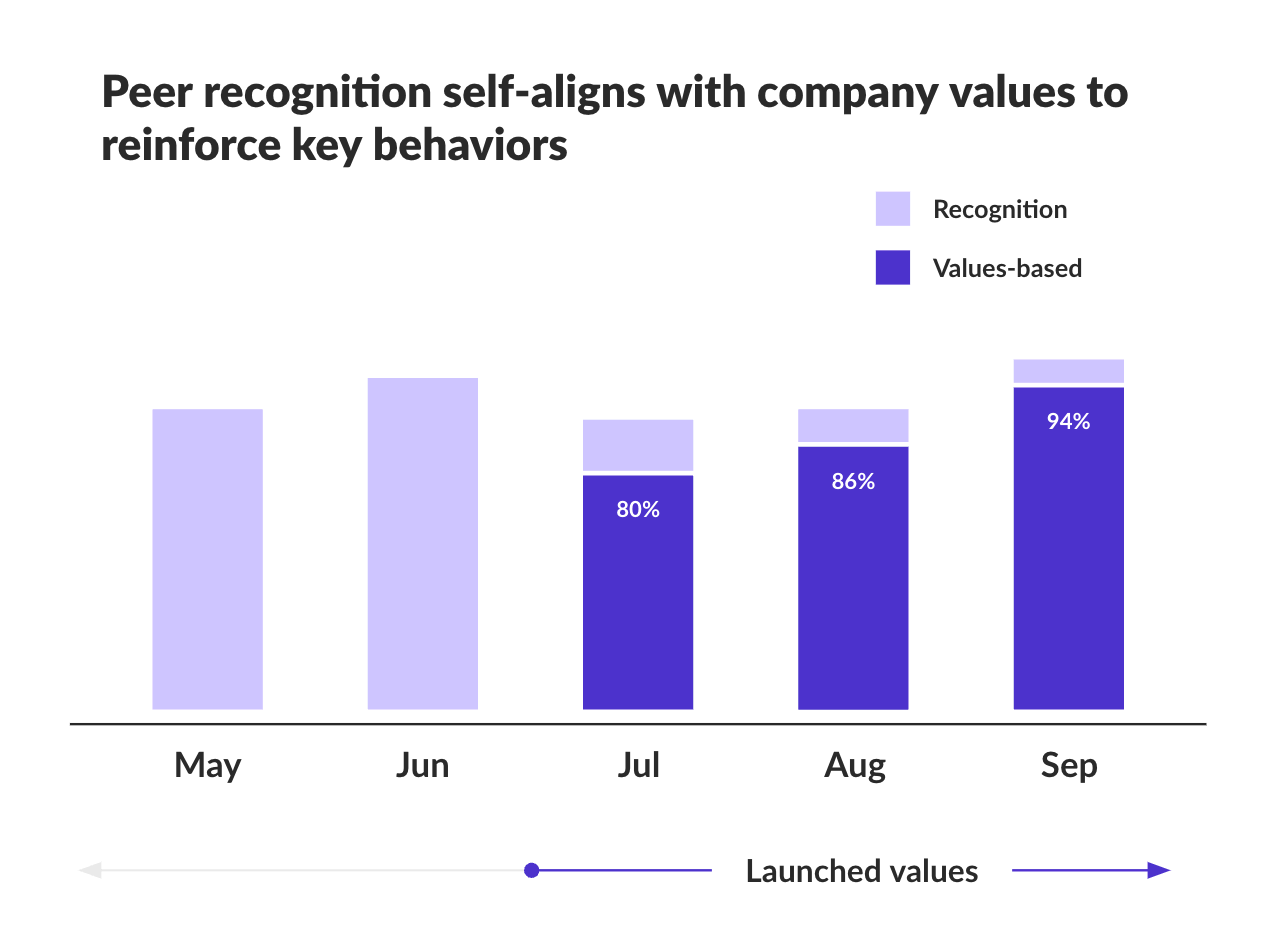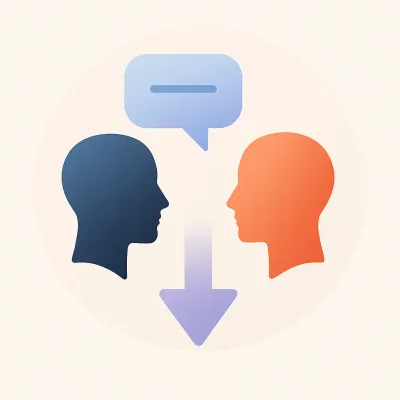Crafting organizational core values is a pivotal step; however, the ensuing journey of embedding these values into the fabric of organizational culture is where the real transformation occurs. This article provides a practical and scientifically-backed roadmap for translating beautifully crafted values into everyday behaviors.
The Science Behind Behavior Change
Behavioural change isn't incidental; it's orchestrated. Rooted in the Fogg Behavior Model, prompts are central and behavior change occurs at the intersection of motivation and ability. Research indicates that employees who receive consistent cues and possess the capacity and motivation are more likely to adopt new behaviors, including those aligned with organizational values.

Recognition, both formal and informal, is a significant factor in influencing employee performance and motivation, playing the role of prompts that initiate behavior change (Organizational Behavior, 2019).
Turning Values into Behaviors with Happily.ai
Happily.ai is a catalyst, anchoring organizational values within daily work. It is built upon the studies and proven methods that rewards and recognition are instrumental in fostering desired behaviors.
The Power of Recognition
McKinsey (2022) found that "up to 55 percent of employee engagement is driven by nonfinancial recognition—which serves as the biggest driver of employee experience." Happily.ai leverages this insight, creating a self-driving mechanism where value-aligned actions are instantaneously recognized and rewarded, fostering an ecosystem of positive reinforcement. We enhance the motivation to act alignd with values.
Case Study: A Major Luxury Retail Brand
A major luxury retail brand's journey is illustrative. A peer recognition program launched prior to announcing their core values saw participation rates over 70%. However, they noticed that the quality of recognition varied, from trivial favors to high-impact initiatives.
Adoption of Core Values
Launching a new set of core values with Happily.ai's peer recognition was transformational, where values of Innovation, Service, Empathy, and Ownership were not just spoken but actively lived. While total recognition initially dipped a few percentage points, an astounding 80% of peer recognition was aligned with core values. And this alignment only got stronger over time.

The Role of Leaders and Managers
Leaders are not just the preachers but the living embodiments of organizational values. Each action, decision, and communication is a thread strengthening the organizational cultural fabric. At the major luxury brand, managers were not just evaluators but active participants, echoing the values in every interaction and decision.
Tactical Steps for Transformation Leaders
Transforming organizational core values into tangible, everyday behaviors is a strategic imperative. For those leading transformations, here are three concrete steps to turn these foundational principles into actionable and lived experiences for every team member.
1. Integrate Core Values in Key Operational Areas
Hiring: Introduce a cultural assessment phase in the recruitment process. Use tools like MyCulture.ai to evaluate candidates' alignment with the organization's core values. Ensure that interview questions and assessments provide insights into candidates' compatibility with these values.
Performance Reviews: Incorporate a values assessment component. Evaluate and rate employees not just on their skillset and deliverables but also on how well they embody the organization’s values. Make this a standard part of the appraisal process.
Goal Setting: Align individual, team, and organizational goals with core values. For instance, if innovation is a core value, set specific, measurable objectives around new ideas, improvements, and initiatives proposed and implemented.
2. Utilize Recognition Programs Effectively
Implement a recognition program, leveraging platforms like Happily.ai, to regularly acknowledge and reward employees who demonstrate behaviors aligned with the company’s values. Publicly celebrate these employees to promote positive reinforcement and encourage similar behaviors across the team.
3. Enable Managers and Leaders as Cultural Ambassadors
Role Modeling: Ensure that leaders and managers consistently exhibit behaviors that reflect the core values. Their actions should serve as a live playbook for the rest of the team.
Communication: Promote open and transparent communication. Leaders should articulate clearly how values translate into everyday actions and decisions.
Accountability: Hold managers accountable for instilling, promoting, and upholding organizational values within their teams. Create a mechanism to measure and evaluate this as part of their performance metrics.
By following these steps, organizations can accelerate the journey from establishing core values to witnessing them in action, fostering a workplace culture that is not just espoused but earnestly lived every day. Each step is crucial; combined, they turn abstract principles into the heartbeat of organizational life, driving performance, engagement, and success.
In Closing
Implementing organizational core values requires more than defining and communicating them. It calls for a systematic approach to embedding these values into the organization's daily operations, management practices, and work ethos. Utilizing science-backed methods like the Fogg Behavior Model, leaders can effectively transform core values into consistent behaviors.
The incorporation of values into hiring processes, performance reviews, and goal setting ensures that they are lived and breathed by every team member. By also utilizing recognition programs and ensuring managers and leaders act as cultural exemplars, organizations can make their core values a dynamic aspect of the workplace environment, driving performance and shaping a positive organizational identity.










